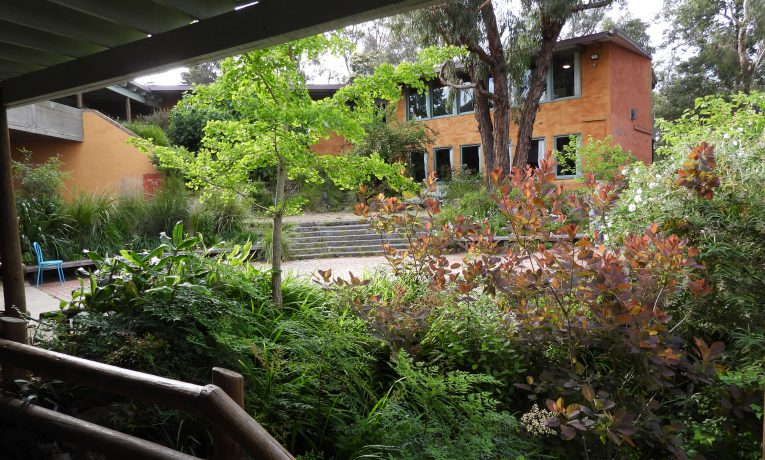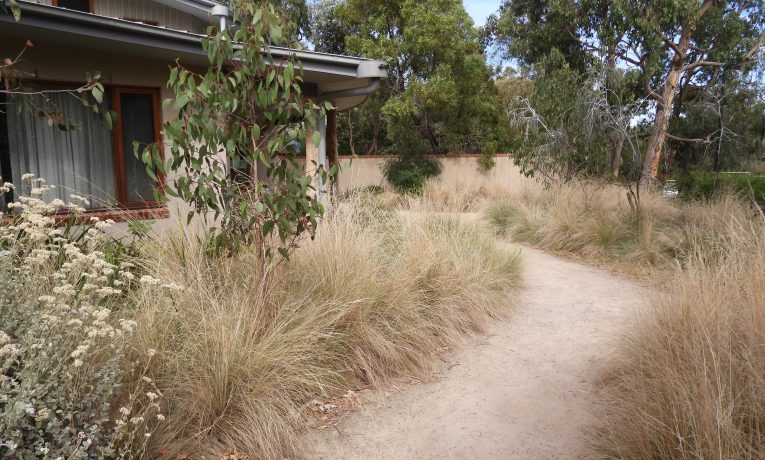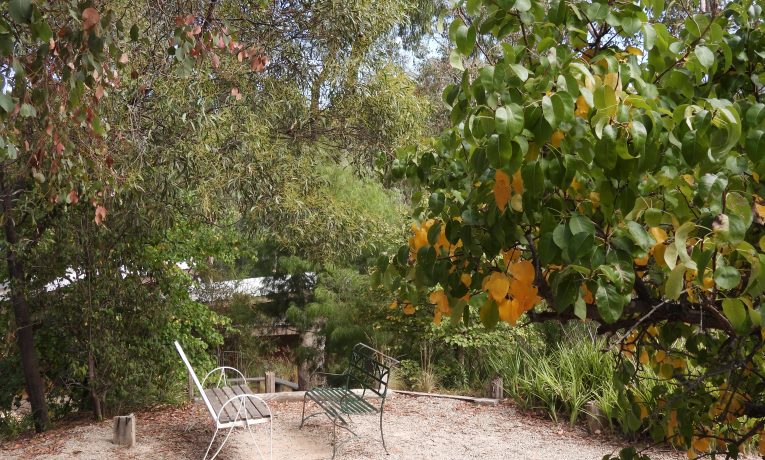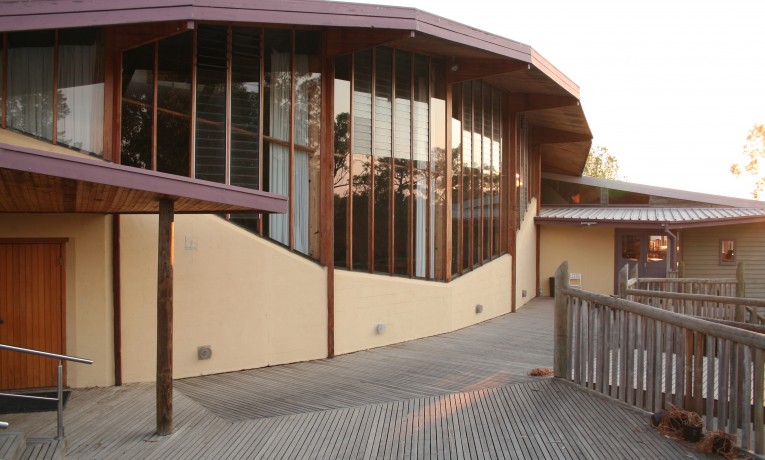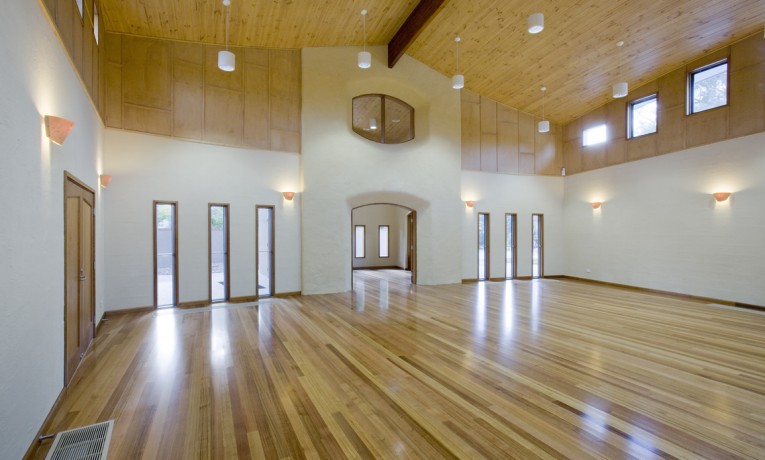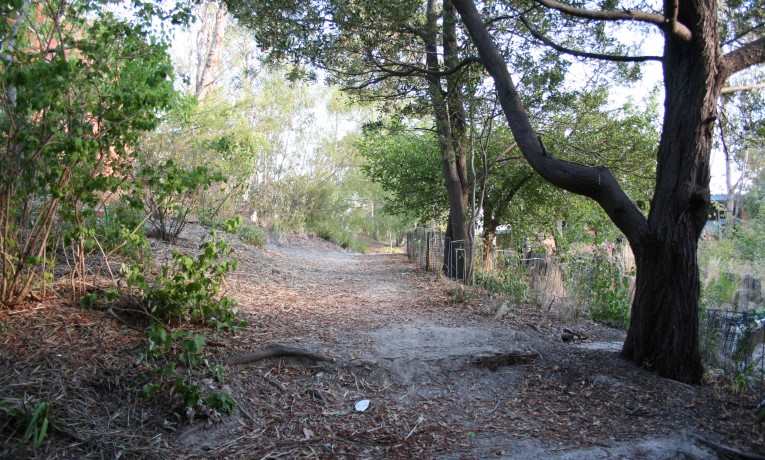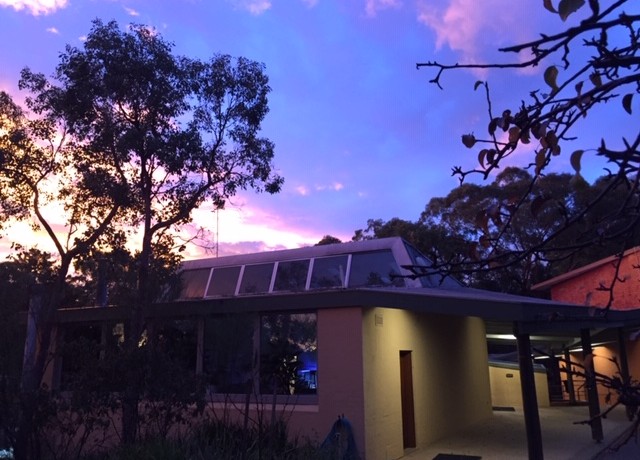The Melbourne Rudolf Steiner School is an independent, co educational, non-denominational school that accepts students independent of their cultural background. We welcome students of any race, ethnic or religious background.
The school has a student population of about 500- a single stream primary and a double stream secondary school in a combined campus.
The Melbourne Rudolf Steiner School is separate and independent from other Steiner schools. It is an equal opportunity school and does not reject or displace students on the basis of perceived academic potential.
At the Melbourne Rudolf Steiner School we foster artistic endeavour and academic excellence whilst honouring the inner life of the child.
We recognise that the school journey is as important as the destination. We offer a broad, inclusive curriculum designed to meet the stage of life and particular qualities of the student.
Academic subject matter is presented in such a way that it engages and supports the developmental phases of childhood and adolescence to provide sensory, social and intellectual nourishment. Imagination is an integral part of the learning process, and is harnessed in every age group as a tool for learning.
Deep respect for self and others are a natural by-product of our inclusive curriculum. Engagement with the natural world is encouraged, as is the acquisition of real life skills – with expert mentors.
Our work lies in assisting children to cultivate clarity of thought, breadth and balance of feelings, and conscience and initiative in actions.
Emphasis is placed on happy social interactions and strong, dynamic relationships. These all contribute to well rounded human beings who are able to capably solve problems and who exhibit resilience, responsibility, self direction, respect and integrity.
School History
In 2012 our school turned 40. Established in 1972, the Melbourne Rudolf Steiner School was the first Steiner school in Melbourne and began life with a kindergarten class of eleven children. By 1984 we had grown to a full stream, kindergarten to class twelve, school and now continue to offer enrolment to 500 students.
School Logo
Set into the floor of our second kindergarten, there is a bronze foundation stone. As a three dimensional solid, this stone is a truncated pentagonal prism. On the upper surface is the ‘sunseal’, an abstract, symbolic representation of human consciousness immersed in the spiritual ocean of being. This drawing comes from a series Steiner made in the first decade of the last century exploring the metamorphosis of growth.
The College of Teachers has decided to use this symbol as the basis for the design of the school logo on all our printed communications and signs. The College is grateful To Gozer Studio for their ongoing creative work on this signature and the school’s website.
The symbol can be used as a basis for contemplation on the nature and evolution of the human being.
As a signature it will express our duty towards the good development of all human beings, and of all the other living creatures that are our companions on Earth.
Location
Our school is situated on nine hectares of native bushland in the eastern Melbourne suburb of Warranwood. Artistic, architect designed buildings and gardens provide sanctuary and inspiration.
The site promotes a very friendly and welcoming environment in which children can grow and learn about themselves and the world. Children are particularly open to influences from their surroundings and our classrooms, buildings and gardens support many aspects of the children’s development.
Philosophy and Ethos
The years of Early Childhood
Nourish the young child’s belief in goodness and beauty
The intent of the Primary School Years is
Awakening the child to love and wisdom
And the High School Years
Awakening young people to their destiny
These intentions permeate every aspect of school life – from the buildings and teaching methodology to curriculum content, decision making and interactions between people.
Our students are introduced to new ideas or knowledge in a variety of ways – aesthetically, intellectually and experientially.
Steiner or Waldorf pedagogy nurtures healthy emotional development in children. By allowing the feeling life to develop and flourish through both experiential and academic learning, children will cultivate their own impulses of action and initiative.
“Our highest endeavour must be to develop free human beings,
Who are able out of their own initiative to impart
Purpose and direction to their lives.” Rudolf Steiner
How the School is Run
Our school is managed and guided by the College of Teachers.
The College of Teachers is the educational decision maker and guide of the school’s life.
This College of Teachers acts as the principal at the Melbourne Rudolf Steiner School, which means that decisions are reached on a consensus basis. This sometimes requires a little extra time, but the values of equality and mutual responsibility are a true priority and this form of social working is a role model for students.
Teachers attend weekly meetings and are involved in policy issues, debates and decisions as to how the school is run, administered and directed. This means that all teachers carry the responsibility of decisions that direct the path of the school and are actively engaged in developing the ethos of the whole.
Teachers at Steiner Schools
Steiner teachers see teaching as their life’s work or calling.
Tertiary qualified teachers participate in Steiner School Teacher Training either prior to teaching at the school or during their working life. Staff turnover is low and the commitment from our educators is often palpable. A close rapport is built up between staff and students, in many instances extending beyond the schooling years.
Here at the Melbourne Rudolf Steiner School we deeply value our teaching staff and require a great deal of them. In addition to the myriad of tasks involved in teaching and classroom preparation, we ask them to consider the inner well being and welfare of each of their students. This may be achieved through daily contemplation of the needs of the students in our care.
Assessment
In a loving, structured environment, with the encouragement of their classmates and teachers, the children develop and appreciate their strengths and work at their difficulties. The social and moral learning that takes place in childhood is as important as the academic.
Rather than emphasize the notion of grading or comparing children, we foster curiosity and the desire to learn so that each child knows success, discipline, healthy self esteem, growth and self empowerment.
Primary school children participate in projects, homework, music practice, and submit their work books for assessment and evaluation. Young children receive advice, suggestions and encouragement, but are not given comparable marks.
Parents are invited to parent teacher meetings on a regular basis; at least once a term, and further interviews with the Class Teacher and Specialist Teachers are arranged as necessary or desired. The child’s progress is at all times closely and consistently monitored. Regular reports are made to parents in person, at Parent/Teacher evenings and/or by telephone. Where there are difficulties, suggestions are made. Other professionals may be consulted and, where recommended, remedial work according to the particular child’s needs may be undertaken.
Secondary students regularly have their work assessed, especially in years ten, eleven and twelve. Secondary school reports are administered twice a year, with an interim report sent to parents prior to Parent Teacher meetings and Interviews. At all times there are open avenues of communication between the College of Teachers and patents, should issues or questions regarding a pupil’s academic or emotional welfare arise.
Support Education
It is recognised that there are children who need extra support in order to be able to participate fully in the class programs. Each child who comes for special assistance is unique and therefore has an individual program designed. Usually, until class 3, the child’s needs can be assessed and catered for by the class teacher, though younger children can be fitted into the remedial program if the class teacher requests it.
The school is aware of the needs of some children for support over a range of areas of development – physical, social, artistic and intellectual, covering language and numeracy.
We recognise that often with greater self esteem comes more positive and successful participation in both academic and social aspects of school life.
Children’s progress and development are monitored by the special education teacher through regular sessions and appropriate follow up tests. At all levels there is consultation between support staff and class/ subject teachers. Comments by the student and by parents are also part of the assessment picture. Communications are always open.
Assistance is offered in Language and Numeracy/ Maths. Movement exercises are given to develop self awareness, spatial awareness and a sense of rhythm. Painting and form drawing tasks may be offered.
The Extra Lesson
The Extra Lesson is not a formal part of the Melbourne Rudolf Steiner School, but an adjunct to our education and one that some of our students find to be hugely beneficial. The Extra Lesson is an assessment, diagnosis and remediation program originally developed by Audrey McAllen, and based on the paradigm of Rudolf Steiners’ education of the child.
The aim of the Extra Lesson assessment is to illuminate any developmental delays which may impede the child’s learning. The resultant diagnosis is used to formulate an individual remedial program, which will assist in overcoming these developmental delays.
The Extra Lesson provides assistance in the areas of physical / spatial orientation, brain orientation, self awareness and emotional growth.
The work of the extra lesson is done through a series of exercises that are presented as games and activities, through the mediums of movement, rhythmic and co ordination exercises, drawing and painting.
Religion
Our school welcomes students of any race, religion or ethnic background and is non-denominational. All pupils and belief systems are treated with respect.
Through the study of various religious traditions and cultures, it is our intent to imbue students with reverence and wonder for life and nature
In our classrooms we explore the community of the world through various cultures and ideologies. The abiding concerns of the great religious traditions – the power of love, the need for compassion, the search for a better way of living and being, the value of community, the cultivation of grace and the knowledge of our unity in creation– these are the concerns of our curriculum and the ethos from which they are taught. They are embedded in every detail. They are not addressed as a separate subject. We cultivate devotion to truth and beauty in all our subjects and we do not conduct Religious Education classes.
Our diverse community has a common interest in the insights of Rudolf Steiner, which are but a thread in the rich and expansive tapestry of many great religious traditions. The school does not proselytise for Christianity or for Anthroposophy, nor for any other religious tradition.
Festivals
The school observes the main Christian Festivals as a means to develop community and to mark the rhythm of the year. However all religious traditions are given respect and acknowledged as part of the fabric of humanity.
Drawing thoughtfully on a range of traditions, for example Australian Aboriginal wisdom, the Norse myths, middle eastern texts, we investigate and celebrate seasonal festivals and traditions. At particular times in their school life students will participate in a Hanukkah festival, a spring maypole dance, a simple shared meal of damper on camp, a Midwinter lantern festival. These festivals enable us to experience a range of feeling and moments of inward quiet, festive joy or companionship.
Morning and Afternoon Verses
Attitudes of reverence are cultivated by the verses used to start and end the day. These short verses bookmark the day –
‘I, seeking, turn myself,
that strength and grace and skill
For learning and for work,
In me may live and grow.’
… taken from the morning verse for older students
Grace is spoken over meals in the early years.
Home Life
There are many warming and functional aspects of school life that readily translate to home life. We encourage and support families to adopt nourishing activities into their own routines and to participate in the wider school community if they desire and as they are able.
School Rules
Part of our school philosophy is a belief that a vital part of living on Earth is caring for others and for the Earth itself. We believe this leads to peace and deep happiness.
Therefore when students or teachers join our school we expect them to join in a community life where we speak decently, look after our health, avoid breaking things, learn and cultivate positive attitudes:
- we all look after one another
- we are helpful and open to others
- we help to look after the buildings and grounds
- we strive to maintain, and with maturity to build, a positive environment in which we will all grow to greater human freedom and expression.
The aims of our rules are very simple:
- to guarantee the safety and well being of others
- to respect the space around us, including the aesthetic space
- to create a healthy and nourishing physical and learning environment
- to respect property
With the directive of our detailed booklet of rules (available from the school, we hope to achieve a genuine freedom that allows all members of this community to grow and mature in ways that develop our full talents.
No Uniform? What to wear??
Our students wear normal clothing and we request moderation in dress and hairstyle to bring a due respect to the daily work place.
Post School Outcomes
Our students have found their way into diverse fields of work. We have outstanding alumni in both Arts and Sciences. Many of our students are working in the visual and performing arts, architecture and design, science and medical research, maths and engineering, IT, education, social and aid work, law and business, both in Australia and overseas.
Child Safety and Protection Policy
Melbourne Rudolf Steiner School has developed the following Child Protection and Safety Policy. This policy is an overarching document that provides key elements of our approach to protecting children from abuse. This policy and the School’s approach are intended to be proactive, preventative and responsive. It is an assumption, as we endeavour to comply with changes in the regulatory environment in which we operate, that the School already regards child safety as being of utmost importance and that we provide a safe environment for the children that we teach. While compliance with the Child Safety Standards is mandatory and every member of our staff bears a real responsibility for this compliance, achieving a culture of child safety is an active and ongoing process which should be reflected in every aspect of our school, rather than stored in documents to be periodically reviewed and consulted.

